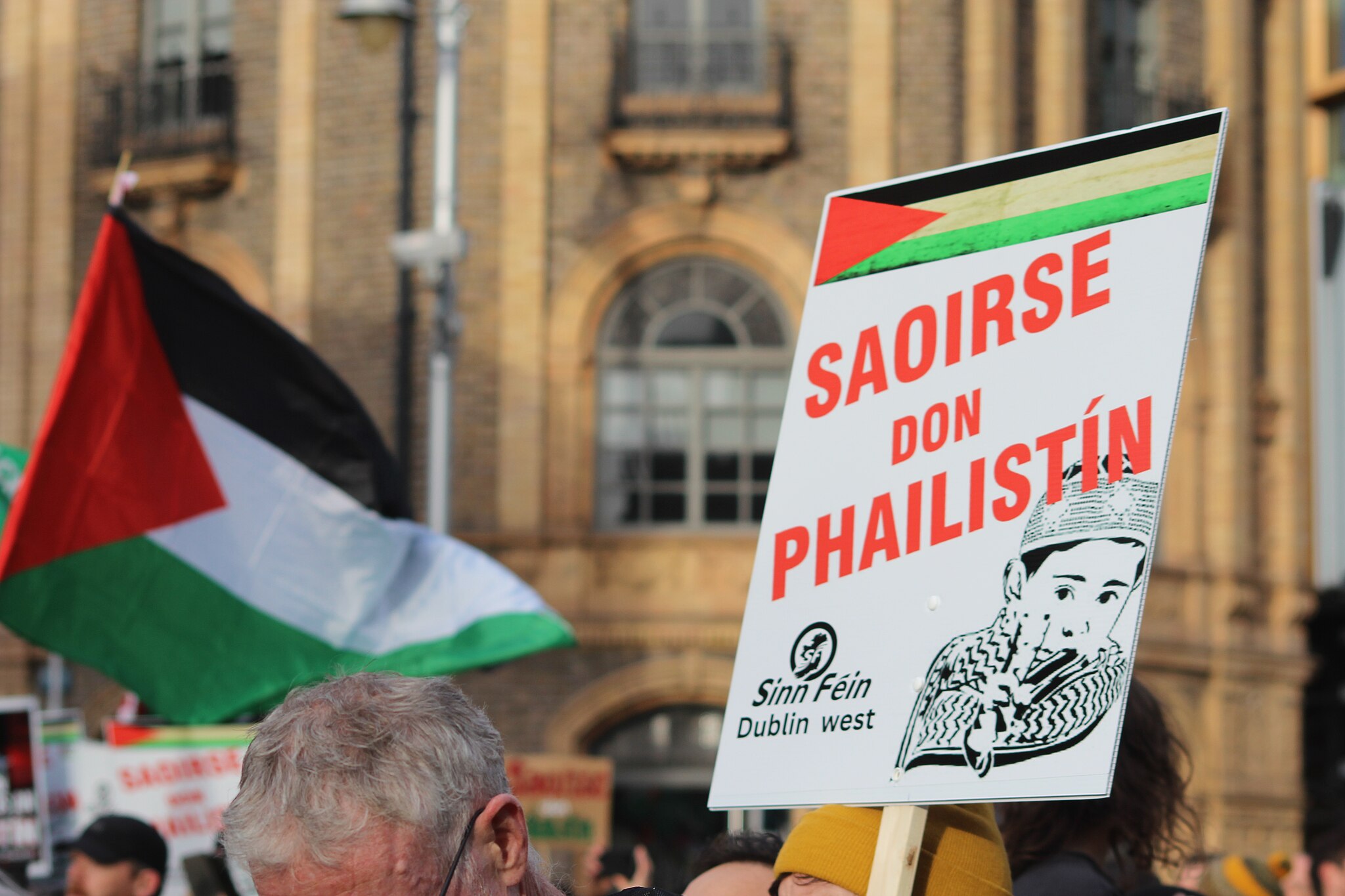Like looking in a mirror: Why Ireland sees itself in Palestine

Irish protesters held signs with phrases like “Freedom for Palestine” while calling for a ceasefire
Anna Johnson - Around the world, states and their citizens have been wrestling with the ongoing conflict between Israel and Hamas in Gaza. In the United States politicians have had to balance a national commitment to support Israel with pockets of staunch support for the Palestinian people, particularly with young voters. While in the US the question of who to support is caught between the US’s values and its foreign policy, in other states public opinion is quite clear. In Ireland, one poll found 71% of those surveyed thought Israel’s response to the October 7 attack from Hamas was disproportionately severe. This level of public condemnation of Israel’s actions makes Ireland an outlier from most of Western Europe.
For many Irish people, the memory of intractable conflict in the streets is still fresh. When they see images of the conflict in Gaza, they are reminded of the conflicts they witnessed before the Good Friday agreement brought most major sectarian violence to an end. The public’s widespread support for Palestine is enabled by the state’s geopolitical code. Ireland’s status as a former colony and its history with conflict with a colonial power changes the way it views conflicts like that of Palestinian statehood. Officially, Ireland has supported a two-state solution to the Israel-Palestine conflict. Segments of the Irish people have been outspoken about their support for Palestine but Irish political leaders have had to be more cautious in their approach to the conflict. Much like the conflict during the Troubles of the late 1970s and 80s, the feud between Israel and the Palestinian people feels insurmountable. Some in Ireland see similarities between their state’s relationship with the United Kingdom and the Palestinian people’s relationship with Israel. The Israeli-sponsored settlements in Gaza are reminiscent of the ‘plantation of Ulster,’ an organized colonization of Ulster by English and Scottish settlers in the 17th century. Segments of the Irish people have been outspoken about their support for Palestine but Irish political leaders have had to be more cautious in their approach to the conflict. Much like the conflict during the Troubles of the late 1970s and 80s, the feud between Israel and the Palestinian people feels insurmountable. Officially, Ireland has supported a two-state solution to the Israel-Palestine conflict. Much like the conflict during the Troubles of the late 1970s and 80s, the feud between Israel and the Palestinian people feels insurmountable. Some who lived during the fighting in Ireland thought a peaceful solution was impossible. But the existence of the Good Friday agreement and the decades of relatively stable relations between the Republic of Ireland and Northern Ireland can act as a blueprint for Israel and Palestine.
The two conflicts share similar motivations and goals relating to the existence and sovereignty of a particular nation. The Troubles and much of the historical conflict in Ireland were fueled by the idea of Irish nationalism, or a shared sense of attachment to a particular nation. Conflicts dealing with nationalism tend to be protracted and complex - like that of the historical conflict between Israel and Palestine, and the current episode that focuses on Hamas. Sharing links of a common history, the Irish people see their own histories reflected in the experiences of Palestinians, strengthening their solidarity with the people and pushing on Ireland’s existing relationship with Israel.
Image credit: Sinn Féin, CC BY 2.0 via Wikimedia Commons

